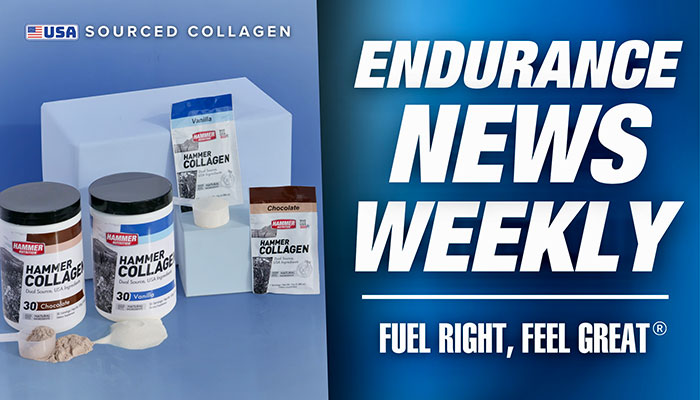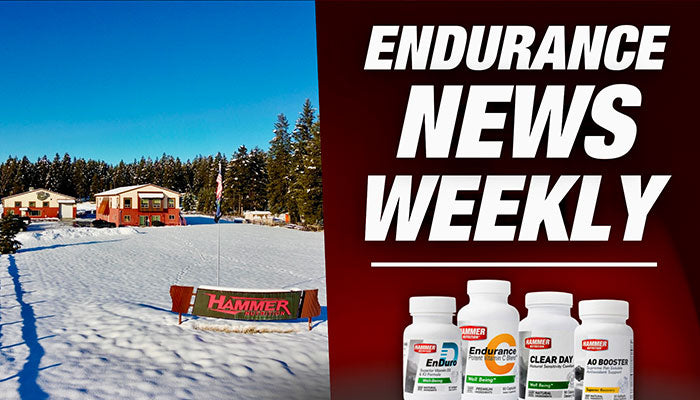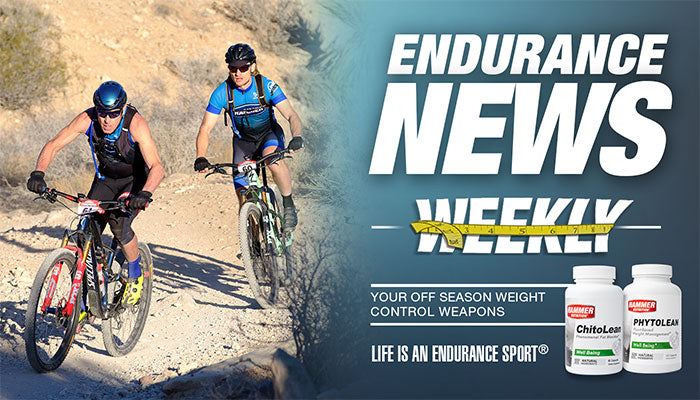
BY BRIAN FRANK
Q: “Recently, after even a couple of days of complete rest from even short runs (6–7 miles), I find that the next time I try to go running or biking, my legs feel like lead. Any advice for resolving this current dilemma?”
A: Great question! Certainly, overtraining could contribute, but your "dead" legs most likely come from ongoing nutrient deficiency, which is common for high-training volume endurance athletes. This common scenario can result from the old-school mentality that protein is not essential for endurance athletes. Eating more protein will make you big, like a bodybuilder, new dietary habits, or just not realizing how vital meeting daily protein goals is.
Regarding protein requirements, high-volume, mostly aerobic athletes need the right amount of protein daily to handle the daily workouts and need quick, efficient muscular repair and recovery so they can go out and do it again the next day. For this reason, plant- and whey-based protein powders were some of the first powders I introduced in the late 80's.
This article focuses on the importance of protein, how much you need, and the other nutrients that support protein synthesis, such as iron, B12, folic acid, antioxidants, and ammonia scavengers!
PROTEIN – the Macronutrient key to muscular recovery
During high-volume training, our protein intake recommendations are 1/2 to ¾ gram of protein per pound of body weight; the lower end is for muscle maintenance, and the higher for engaging in strength training/building mass.
So, If you’re a 165 lb athlete, you’ll want to consume approximately 76–120 grams of protein daily. On your days off, I suggest you aim for at least ½ of your body weight in grams of protein (60 grams if you weigh 120 pounds). Adjust for your body weight if you weigh more or less than this.
Your protein should come primarily from high-quality food sources and can be supplemented with any of our plant and/or whey-based protein powders and bars to help you reach your daily total.
IRON DEFICIENCY / B12 and FOLIC ACID SUPPLEMENTATION
You might also check for anemia, which is common among runners. If you’ve had blood work done in the past six months, look at your hemoglobin number to see if it’s low. With or without the number, though, the solution is simple: seek iron-rich foods (NOT iron-fortified)—spinach, beet greens, and other plant sources rich in organic iron.
Even if you are getting protein and iron, if you are not getting enough vitamin B12 and folic acid, your recovery will lag—along with your body’s ability to absorb iron effectively, repair/build muscle tissue, and form red blood cells.
Folic acid is vital for many reasons and is a required substance for synthesizing heme, the iron-carrying component of the hemoglobin in red blood cells.
We make a B12/folic acid product—Xobaline (pronounced Zo-buh-lean), for these and many other reasons. First introduced in 1989, Xobaline was a standalone B12 product that I dubbed “the cure for dead legs”. The updated B12/folic acid formula is even better than the original. If you go to the “Product Detail” page for Xobaline on the Hammer Nutrition site, you’ll find even more information about its benefits.
FREE RADICALS
Free radical overload can also contribute to a sluggish recovery. If you do not currently take a variety of antioxidants—especially the "key players" (beta carotene, vitamins C & E, and the minerals selenium and zinc)—that would be a good idea. These antioxidants are all in one product—Premium Insurance Caps.
To further get the upper hand on free radical activity in your body, I'd encourage you to consider adding even more antioxidants. Hammer Nutrition’s Super Antioxidant and AO Booster products contain potent combinations of water-soluble and fat-soluble antioxidants, respectively, that don't duplicate the ones in Premium Insurance Caps or other Hammer Nutrition supplements. We designed these products to give you even more protection for your immune system, circulation, and recovery, which sounds like just the ticket for you.
The last part of the puzzle is adding Anti Fatigue Caps to your training supplements, especially during longer runs. The reason is that after about 70-90 minutes of exercise, we begin breaking down protein (muscle tissue) for energy needs, and ammonia is released into the muscles, causing further damage and the sensation of heavy legs. The ingredients in Anti Fatigue neutralize or scavenge the ammonia before this can happen!
Got other concerns? Call or go online today to chat with a friendly expert who can recommend just the right combination of products.










1 comment
Very very interesting, thank you for sharing.